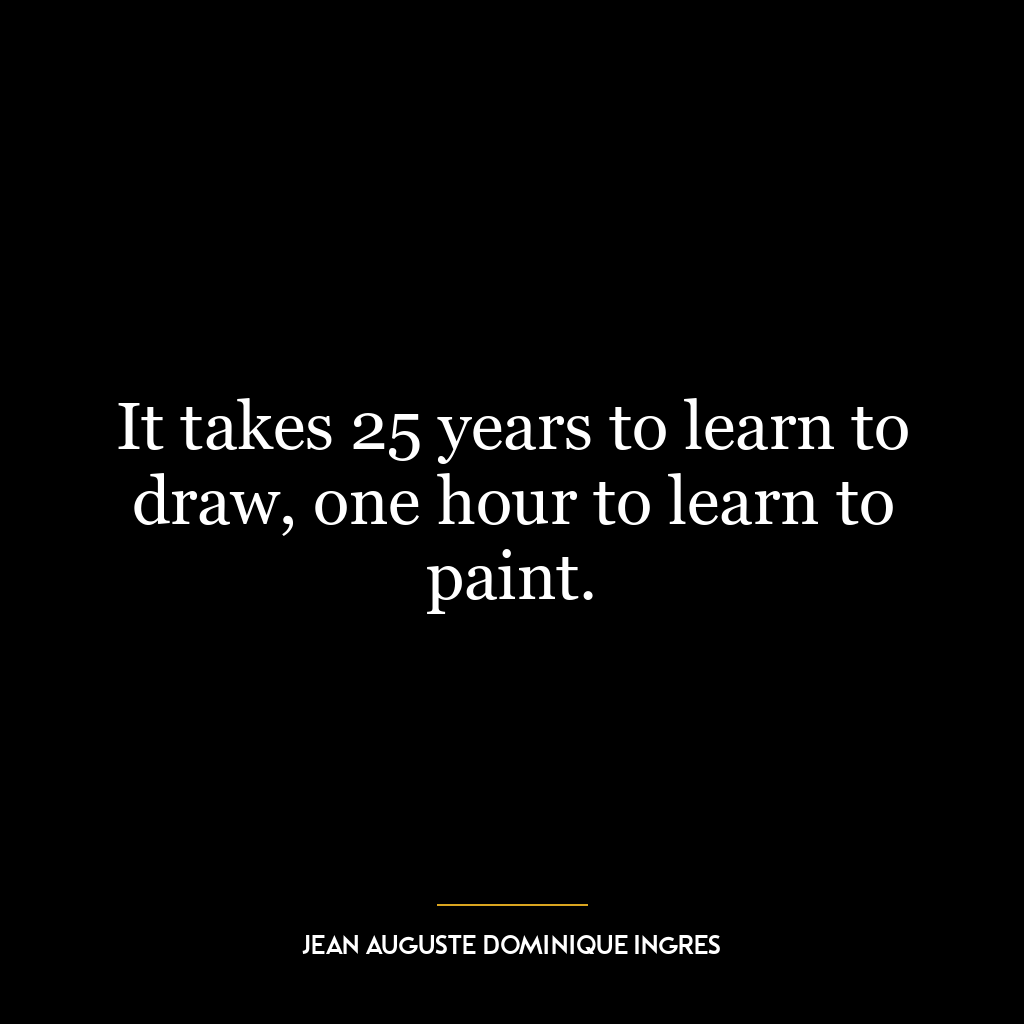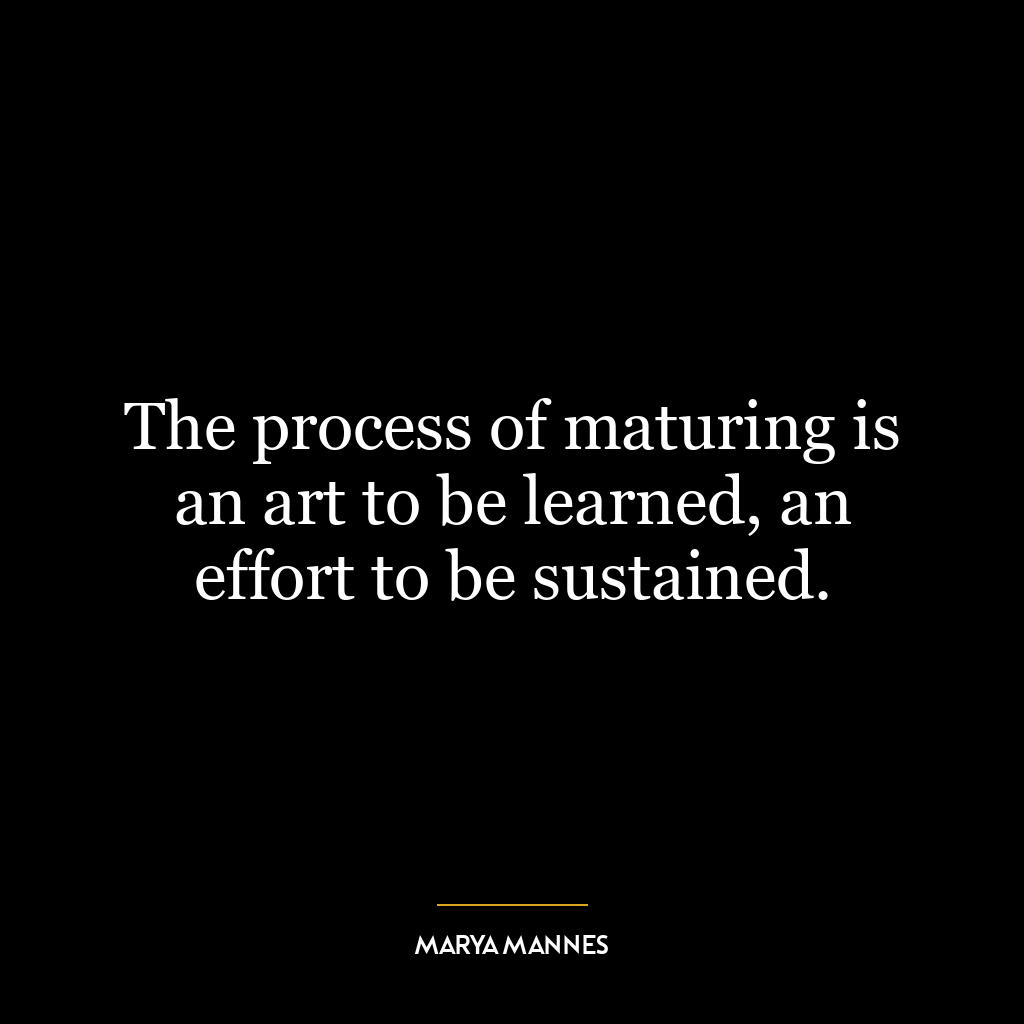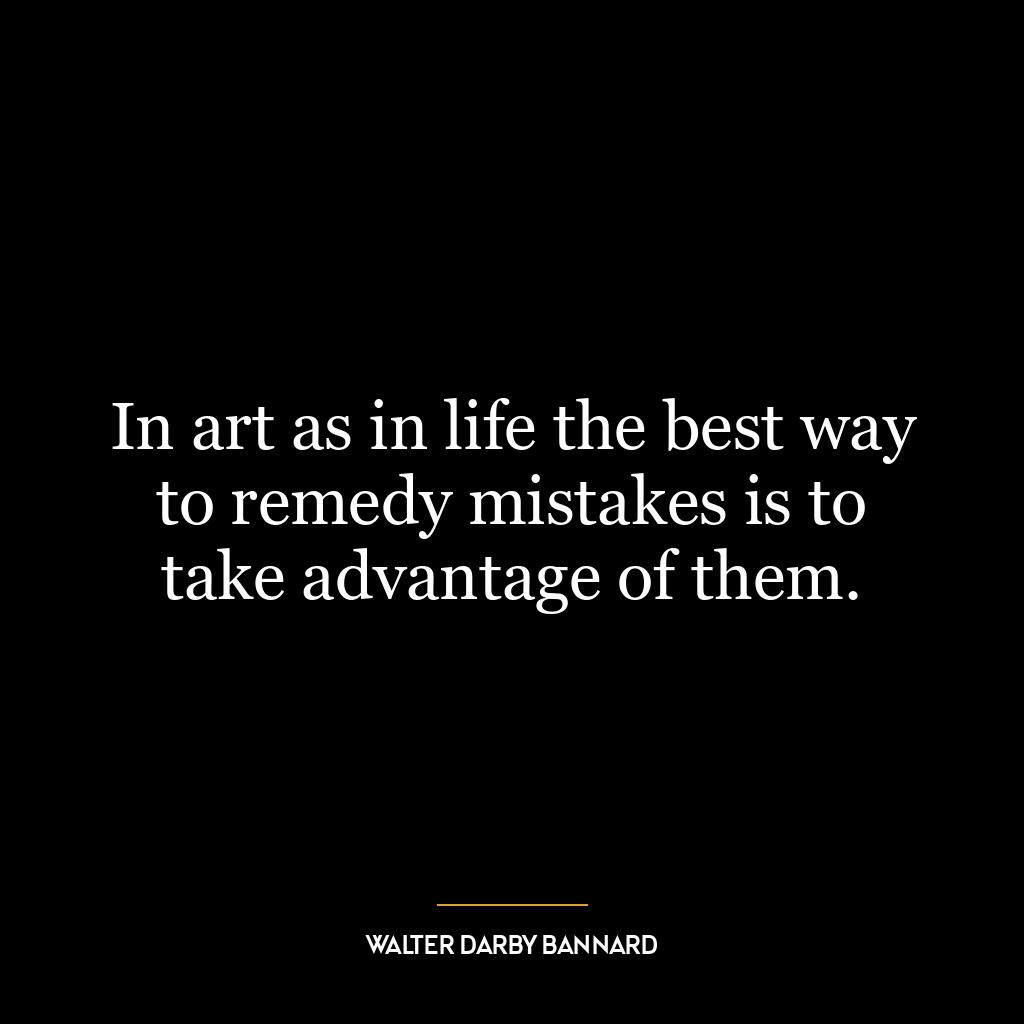You can learn great things from your mistakes when you aren’t busy denying them.
This quote emphasizes the importance of acknowledging and learning from our mistakes. It suggests that mistakes are not inherently negative, but rather, they are opportunities for growth and learning. When we deny our mistakes, we are essentially refusing to recognize these opportunities, which hinders our progress and personal development.
The quote underscores the idea that mistakes are essential stepping stones on the path to success. If we are too busy denying them, we miss the chance to learn the valuable lessons they offer. Instead of seeing mistakes as failures, we should see them as feedback. They show us what doesn’t work and guide us towards strategies that might.
In today’s fast-paced world, where success is often expected instantly, this quote is particularly relevant. We live in a society that often stigmatizes failure and mistakes. However, if we can shift our perspective to view these not as setbacks, but as opportunities for growth, we can foster resilience and a growth mindset.
In terms of personal development, this philosophy can be transformative. By embracing our mistakes, we can become more self-aware, identifying our weaknesses and turning them into strengths. In practical terms, this could mean reflecting on a failed project or relationship, identifying what went wrong, and using that knowledge to make better decisions in the future.
Moreover, this idea can also be applied at an organizational level. Companies and institutions that encourage a culture of learning from mistakes are likely to be more innovative and resilient. They can adapt more effectively because they are not afraid of failure, but see it as a part of the process of success.
In conclusion, the quote encourages us to shift our perspective on mistakes. Instead of denying them, we should embrace them as valuable learning opportunities. This mindset can lead to personal growth, innovation, and resilience, both on an individual and organizational level.








